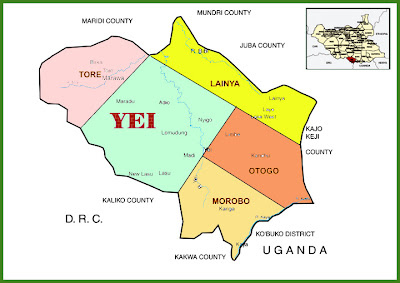Name
Chollo also known as Collo and Shilluk to outsiders
Area
Found in Western and North Western area of Upper Nile State
Facts
One of South Sudan's largest ethnic groups
The Shilluk are not just a tribe they are part of the:
Läki Cɔllɔ or the Shilluk Kingdom
Shilluk people are the only people in South Sudan who have a recognised kingdom,which also has it's own government.They are also led by a King called Reth the current king is Reth Kwong.
Fashoda (Pachodo) is the Capital of the Shilluk Kingdom,
The Shilluk are part of the East Sudanic Group (which separated in 3000 BC),which includes neighbouring tribes such as the Dinka people.
Unfortunately for the Shilluk's over the years they have had a less than cohesive relationship with their Dinka neighbours.One of their most recent disagreements has been over land ownership.As the Dinka's of Jonglei State claim that the Shilluk land east of the Nile belongs to them and is not part of the Shilluk Kingdom.
As this land has belonged to the Shilluk's for hundreds of years,the tribes are in disagreement,which caused a rebellion to break out.Which caused the SPLA (Sudan Peoples Liberation Army) and the Dinka's to attack the spiritual home of the Shilluk,Fashoda in late 2009.
Beliefs
The Shilluk look up to and believe in their spiritual leader and national hero Nyikang,who is believed to have been given special gifts by Jwok (God).
The Shilluk people are believers of Spiritualism and/or Christianity (Catholicism and Protestantism) but a small minority have converted to Islam.This is because the Shilluk people collectively are a community which ensures that their traditions and beliefs are retained by passing them on to the next generation.
Below is a video of a Shilluk language film about Jesus Christ:
Economy:
Agriculture and Fish
Cattle
Customs:
Markings
The Shilluk people have a pattern of dots marked on their heads this is no longer a tradition which every Shilluk goes through but it's seen as a trademark of the Shilluk people.
 |
| Two Shilluk men with the trademark Shilluk markings,wearing Lau in 1936 |
Lau
Is the traditional dress of the Shilluk people,which has now been adopted into South Sudanese society.It is traditionally a cotton fabric worn and tied on left shoulder by men and worn on the right shoulder by women.
Naming process
Girls names
Normally begin with Nya
Naming process after a family grievance
When a child is born after a grievance in the family they are called Aban, Kimo (both unisex names) and Ronyo (males only)
Other names associated with occasions :
Okach (which means hungry) or Nyakach refers to famine
Oyoo (which means road) or Nyayoo refers to a birth on the road/street
Acwanyo refers to coinciding with the arrival of an important person or relative
Diaspora
Shilluk are found in mainly Canada,Europe (mainly in the United Kingdom),USA and Australia
Notable Shilluk people
 |
| Pagan Amum |
Pagan Amum (Minister of Peace and former Secretary General of the of Government of South Sudan)
Lam Akol (Chairman of
SPLM-DC ,former Minister of Foreign Affairs and a former high-ranking official of the SPLA)
Viviana Nyachan James (singer)







































